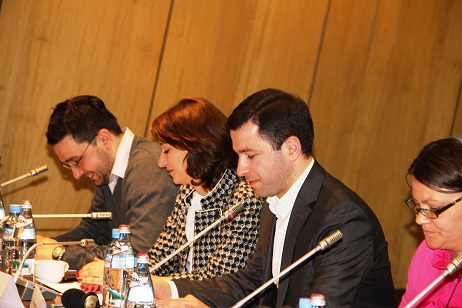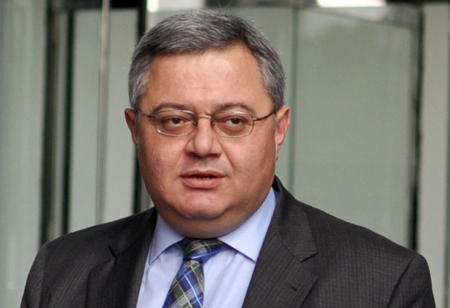Georgian NGO’s release report on High Council of Justice

Two Georgian Non-Governmental Organisations (NGOs) have released a report detailing activities within the country’s judicial system.
Today, Georgian Young Lawyers’ Association (GYLA) and Transparency International Georgia (TI Georgia) jointly presented their second report on the activities of the High Council of Justice (HCOJ).
The HCOJ is an independent organisation created to coordinate the judicial system and promote the effectiveness and independence of the judiciary.
The High Council of Justice Monitoring Report mainly covered the 2013 year, and was implemented to follow the direction of ensuring transparency in the Council’s activities, clarifying procedural issues and reasoning of decisions, appointing transfers of judges and composition of the organisation.
The report stated despite some progress, some gross deficiencies were still observed within HCOJ activities, which resulted from ineffective legislative regulation and misinterpretation of legislation by the HCOJ.
Transparency of the HCOJ activities
Transparency of the sessions was particularly problematic following the 2012 Parliamentary Elections until the appointment of the new HCOJ members, while a number of decisive decisions were made by the Council during that period.
Even though HCOJ released information in advance about anticipated sessions, it still failed to observe the seven days' term for advance publication of the information and agenda, the report stated.
Meanwhile, HCOJ did not adequately release adopted decisions within reasonable time periods on its website, and the right of the mass media to carry out audio-video recording of the HCOJ sessions was unreasonably restricted in certain cases.
The report highlighted problems on the decision of the designation of judges, which arose from monitoring results. It stated the whole process surrounding designation of judges continued to be problematic and defective. Different legislative procedures were envisaged for two diverse categories of candidates.
As a result, the process was not transparent and unclear legislative regulations prohibited the judges’ selection process on the basis of an impartial criteria and assessment. Within the previous reporting period, adopted decisions lacked reasoning, the report claimed.
In addition the two NGOs who led the report, GYLA and TI Georgia, submitted recommendations for HCOJ. Some recommendations included improving transparency of the High Council of Justice activities, elaboration of legislative regulation of necessary procedures to be adopted by the HCOJ, and judges' designation to ensure impartial selection of candidates to guarantee substantiated decisions.
 Tweet
Tweet  Share
Share
